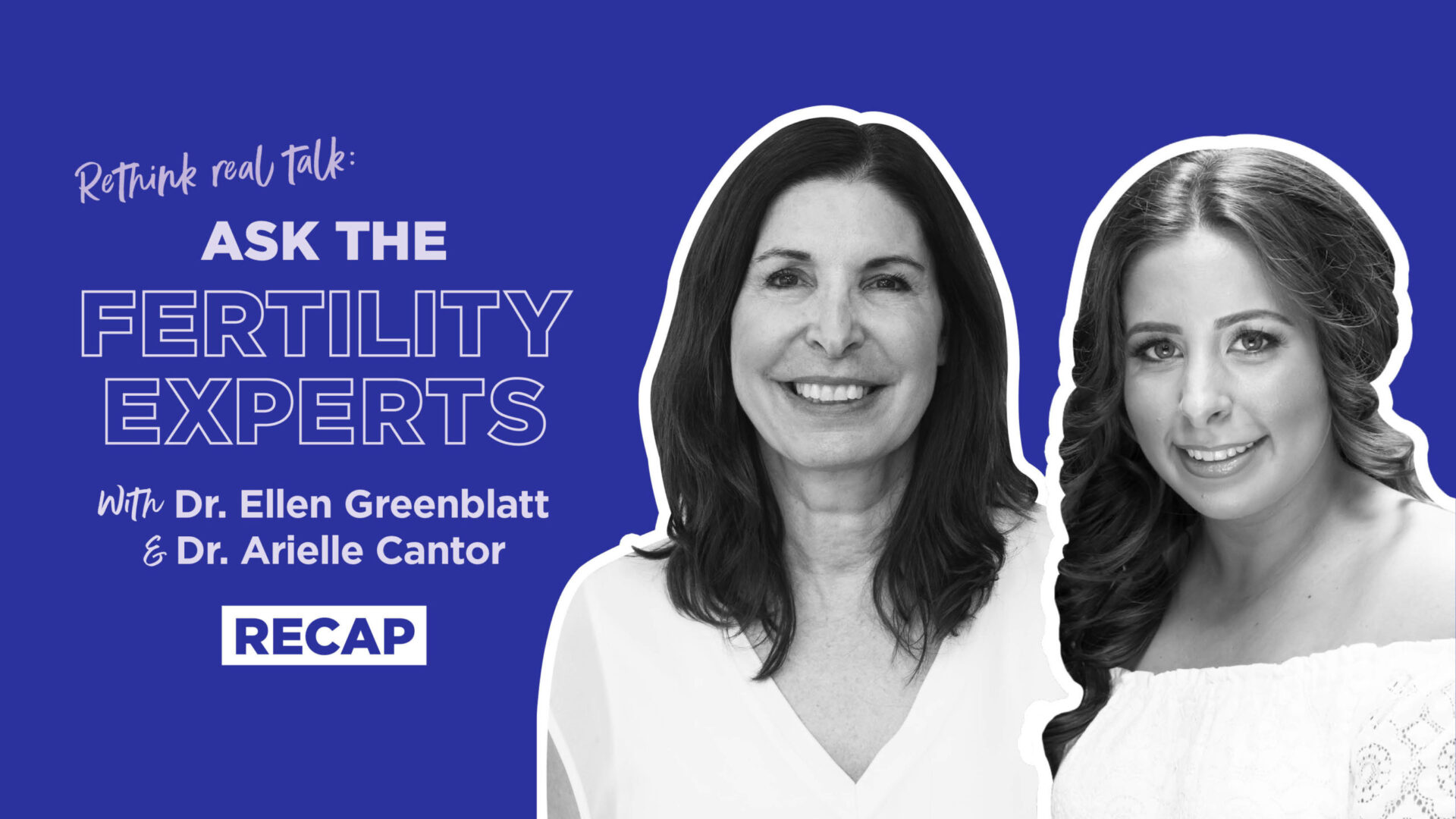Cancer and Fertility: Here’s What You Need to Know
4 MINS to read

When you’re hit with a life-changing diagnosis in what should be the prime of your life, your best-laid plans get put on the back burner. Suddenly, on top of cancer, you’re also scrambling to make life-defining decisions about family planning and fertility in a matter of weeks, whether or not it’s top of mind. Sounds like you need all the help you can get.
That’s why we’ve asked fertility expert Dr. Arielle Cantor to answer some of your most asked questions from our Rethink Real Talk on the topic. Here’s what you need to know, whether you carry a gene mutation or are heading into treatment and are considering the impacts on your future fertility.
Chemotherapy can have a damaging effect to developing eggs in the ovary. Your age and specific drug regimen can impact fertility. Using hormone therapy after treatment can also lead to delays in childbearing, which can make getting pregnant more challenging. Women are born with a fixed number of eggs and there is a depletion over time. This is accelerated after age 35 and especially after age 40. Chemotherapy can also cause a sharper decline in egg number.
Fertility preservation involves techniques to maintain the reproductive ability of people undergoing medical treatment that can cause infertility. Options include egg freezing, embryo freezing, ovarian tissue freezing (mainly used before puberty) and suppressing ovarian function temporarily with a group of medications known as gonadotropin-releasing hormone analogues.
You will need to take injectable medications for ~1.5 weeks to stimulate the ovaries to make multiple eggs. Blood tests and pelvic ultrasounds will be done throughout the process to monitor your response to the medications. For women with breast cancer, an oral medication is added to keep estrogen levels lower during treatment. The eggs are then removed from the ovaries and frozen. The whole process takes ~2-3 weeks and can be started at any time during the menstrual cycle.
The stimulation medications are usually well tolerated, but can cause some soreness at the injection site, bloating in the lower abdomen and possible mood changes. Hyperstimulation or an over-response to the medications is rare. Risks of the egg retrieval procedure such as infection, heavy bleeding or damage to surrounding structures are also uncommon.
The chance of a successful pregnancy depends on the age at which you freeze your eggs and the number of eggs that are frozen. Live birth is not a guarantee, but this process provides an opportunity to try to have a child using your own eggs.
The use of fertility medications in women with breast cancer appears to be safe. Studies have not shown increased recurrence rates of breast cancer in women who decide to pursue fertility preservation. Pregnancy also does not appear to have a negative impact on breast cancer prognosis when timed appropriately. The decision of timing of pregnancy should be determined in consultation with your oncologist.
Some choose not to pursue fertility preservation or are unable to do it due to timing or other medical reasons. Some women maintain ovarian function after treatment and may be able to conceive on their own. Other possible options include getting pregnant with donor eggs or adoption.
This can be done through a technology called pre-implantation genetic testing. Embryos are created and a few cells are taken and analyzed for the specific gene defect. Based on these results, embryos without the mutation can be transferred back to the uterus. There is also the option of prenatal testing in early pregnancy.
Interested in getting expert insights to help you navigate common cancer experiences affecting young people? Check out our Rethink Real Talk series.
Dr. Arielle Cantor is a Gynecological Reproductive Endocrinology and Infertility Fellow at Mount Sinai Fertility. She obtained her undergraduate and medical degree from McGill University. She then completed her residency training in Obstetrics and Gynecology at the University of Alberta. She’s a member of the Canadian Fertility and Andrology Society (CFAS) and the American Society of Reproductive Medicine (ASRM). Dr. Cantor aims to empower patients by guiding them in their decision making throughout their fertility journey. She has a particular interest in fertility preservation.